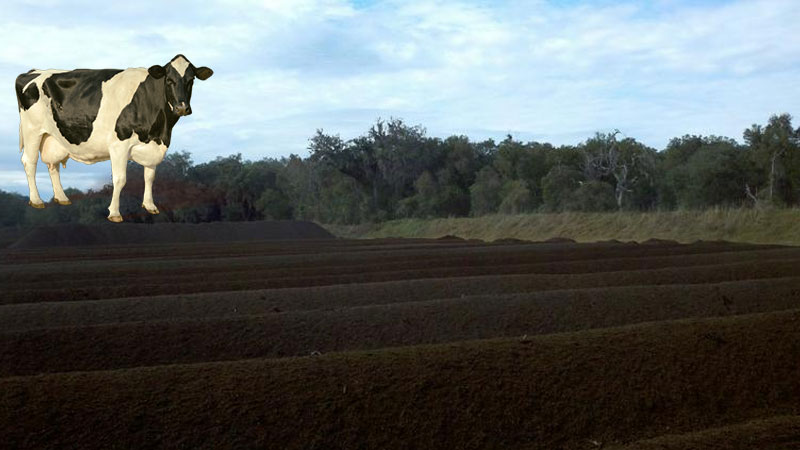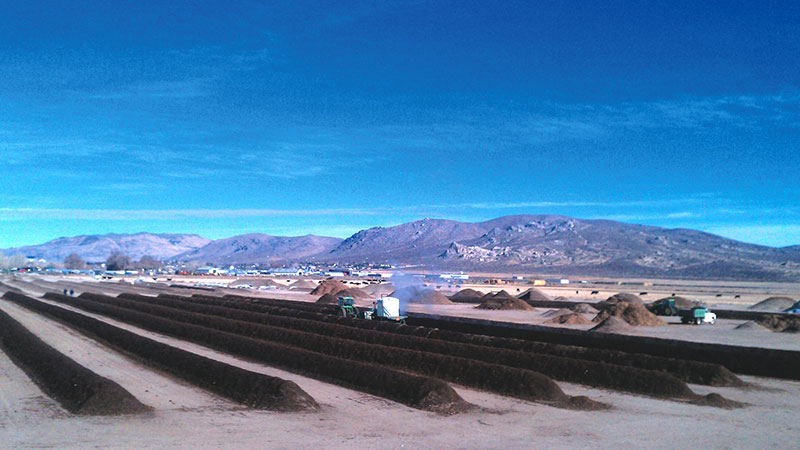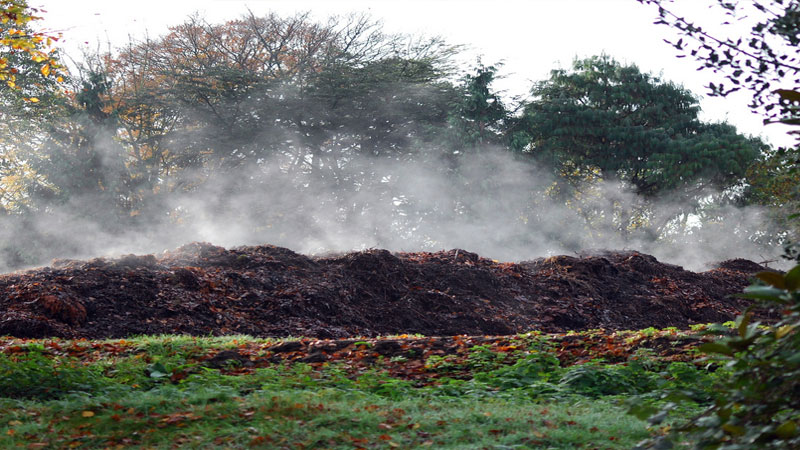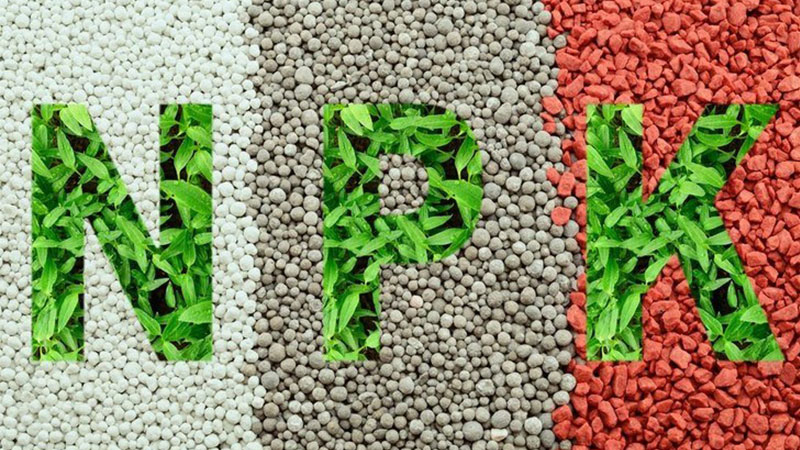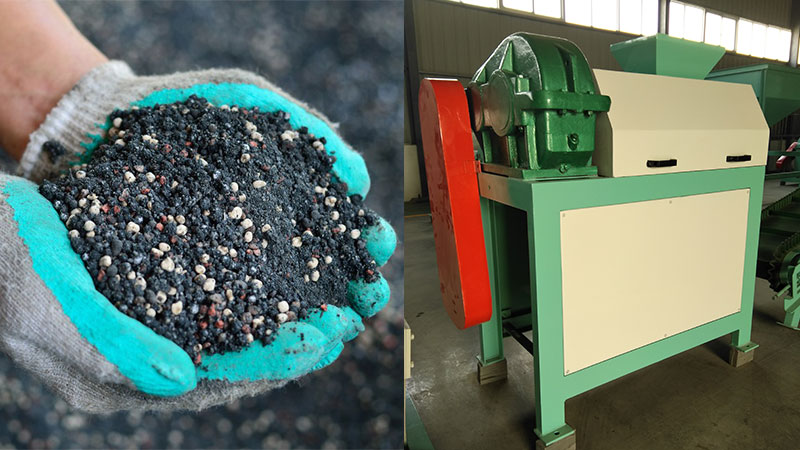Cow manure contains 10%-20% crude protein, 1%-3% crude fat, 20%-30% nitrogen free extract and 15%-30% crude fiber, which makes it with high nutrient. The cow dung after composting has achieved harmless and stable treatment, reaching the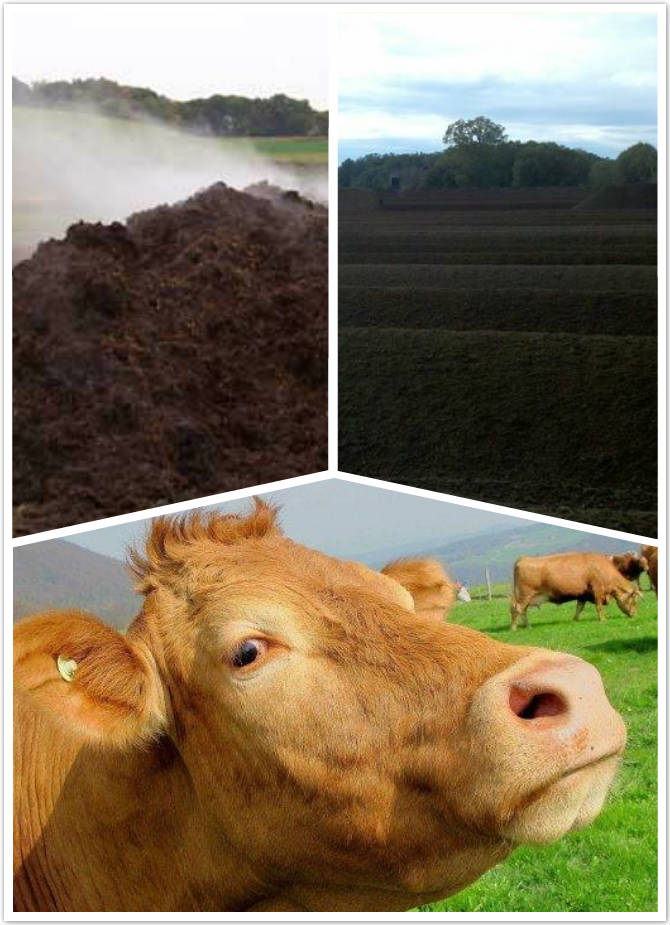 basic conditions of resource utilization of organic fertilizer. Using the processing technology of organic fertilizer production can make cow manure fertilizer reach the level of commercialization, deepening the application effect and expanding range of use.
basic conditions of resource utilization of organic fertilizer. Using the processing technology of organic fertilizer production can make cow manure fertilizer reach the level of commercialization, deepening the application effect and expanding range of use.
How to Produce Cow Dung Fertilizer
The production process of commercial cow dung organic fertilizer mainly includes the steps of composting, crushing, mixing, granulating, drying, cooling, screening and packaging. Generally speaking, the common production capacity of single organic fertilizer production line is among 1t/h-10t/h because too small could not reach economy of scale while too large would increase the difficulty of raw materials and finished products transport and storage.
- Fermentation and composting: collect cow dung and bovine urine and mix with hay, rotten silage and other organic agricultural wastes for composting, so as to adjust moisture, ventilation, temperature and carbon nitrogen ratio. During fermentation process, using windrow compost turner machine can realize fully fermentation through timely and uniform composting. This equipment does not need suited fermentation tank, which saves building investment. Besides, it needs larger site for convenient composting.
- Raw materials crushing and mixing: The function of this phase is using semi-wet material crusher and horizontal type mixer to grind and mix raw materials. According to years of organic fertilizer production experience, adopting vertical type crusher can prevent cow manure composting materials from sticking on the wall of machine, not easy to block.
- Granulation process: Adopting new type organic fertilizer granulator can make the crushed and mixed raw materials into granules. This equipment has some obvious advantages, such as wide adaptability for raw materials, especially for organic matters, no strict requirement to raw material density and crushing fineness, no need to dry raw materials, high rate of finished granules with stable granulation performance. The granules produced by this organic fertilizer granulator are not easy to break up with even appearance. Moreover, there is no need to add water during the granulation process, which saves the subsequent cost of granules drying.
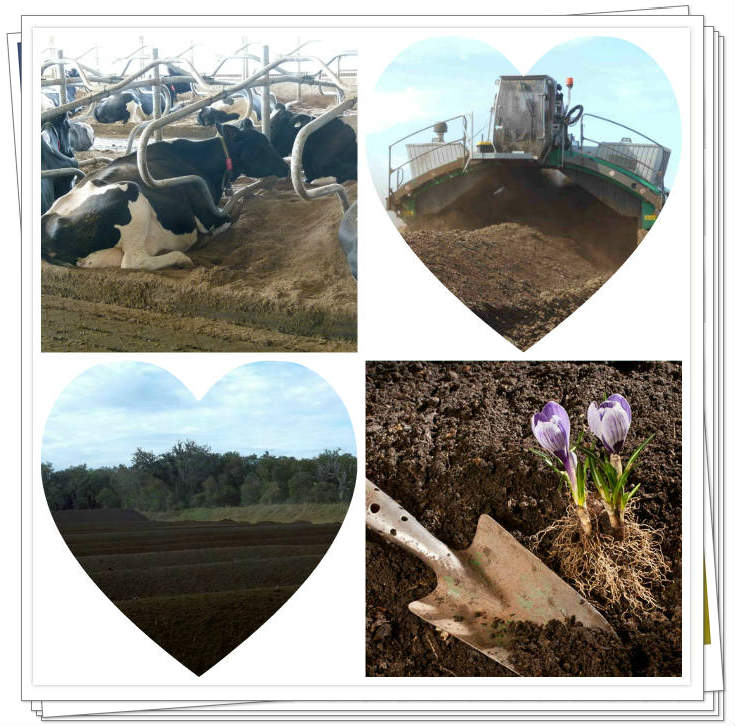 Screening process: There may be some difference among the diameter of particles produced by granulator, which needs screening machine to sieve and classify. The rotary drum screener has the features of structure simple, noise lower, running steady and vibrate lower. Moreover, it has a clearing device on the upside of the roller, which can clean the screen sieve while working in case of jam. This can fully improve the screening speed and efficiency. For organic fertilizer production line with large capacity, Azeus recommends to equip automated back feeding system – conveying the unqualified granules after screening with belt conveyor into crusher for grinding again, and then continue to granulate, conducing to promoting the continuous performance capacity of production line.
Screening process: There may be some difference among the diameter of particles produced by granulator, which needs screening machine to sieve and classify. The rotary drum screener has the features of structure simple, noise lower, running steady and vibrate lower. Moreover, it has a clearing device on the upside of the roller, which can clean the screen sieve while working in case of jam. This can fully improve the screening speed and efficiency. For organic fertilizer production line with large capacity, Azeus recommends to equip automated back feeding system – conveying the unqualified granules after screening with belt conveyor into crusher for grinding again, and then continue to granulate, conducing to promoting the continuous performance capacity of production line.- Drying & cooling process: Drying the screened granules to remove moisture can make granules achieve the standard requirement of organic fertilizer moisture content. And after cooling process, the difference between the temperature of granules and of environment would be less than five degree Celsius.
- Packaging process: After cooling, granular organic fertilizer can be weighed and packaged by full-automatic fertilizer packaging machine, greatly saving labor cost and promote the organic fertilizer production efficiency.
Merits of Cow Manure Organic Fertilizer
In virtue of abundant organic matter, cow manure organic fertilizer can roundly provide NPK and multiple micro-elements required by crops, which could improve the quality and yield of agricultural products by a big margin. The application of organic manure produced by cow dung will rapidly propagate a large number of beneficial active bacteria, effectively inhibit the growth of harmful microorganisms, and at the same time produce a variety of enzymes, promote the robust growth of crops, and enhance the resistance of crops to pests and diseases. Moreover, it can effectively enhance the physical and chemical properties of the soil, loosen the soil, improve the permeability of the soil and greatly increase the soil fertility.

